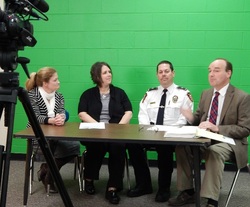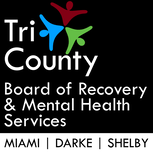Mental Health First Aid Teaches:
- Risk factors and warning signs of mental health concerns.
- Information on depression, anxiety, trauma, psychosis, and substance abuse.
- A 5-step action plan to help someone developing a mental health concern or in crisis.
- Available evidence-based professional, peer, and self-help resources.
Adult Mental Health First Aid is appropriate for anyone who wants to learn how to help an individual who may be experiencing a mental health crisis or concern.
Youth Mental Health First Aid reviews the unique risk factors and warning signs of mental health problems in adolescents ages 12-18. It emphasizes the importance of early intervention and covers how to help an adolescent in crisis or experiencing a mental health challenge. The youth course is intended for anyone 16 years or older to learn how to help young people.
The Tri-County Board has training more than 500 individuals in Mental Health First Aid or Youth Mental Health First Aid since 2014.
Normally a $25 per person class, the 8-hour training is being offered at no cost in May. No special code is required, For more information and for links to register, go to www.tcbmds.org/mhfa. May dates and locations scheduled are:
Mental Health First Aid
- Monday May 7, Troy
- Thursday May 24, Sidney
Youth Mental Health First Aid
- Wednesday May 2, Sidney
- Thursday May 17, Sidney
- Tuesday May 29, Troy
To arrange Mental Health First Aid training for groups or organizations, contact Ian Ridgeway, Prevention and Wellness Coordinator, [email protected], or call (937) 335-7727 ext 216.


 RSS Feed
RSS Feed
